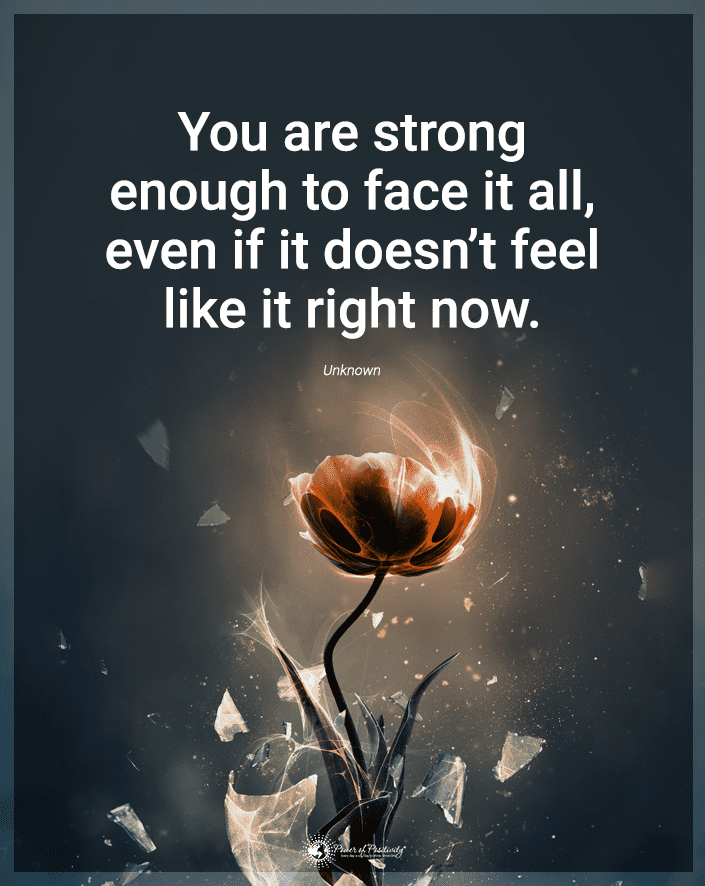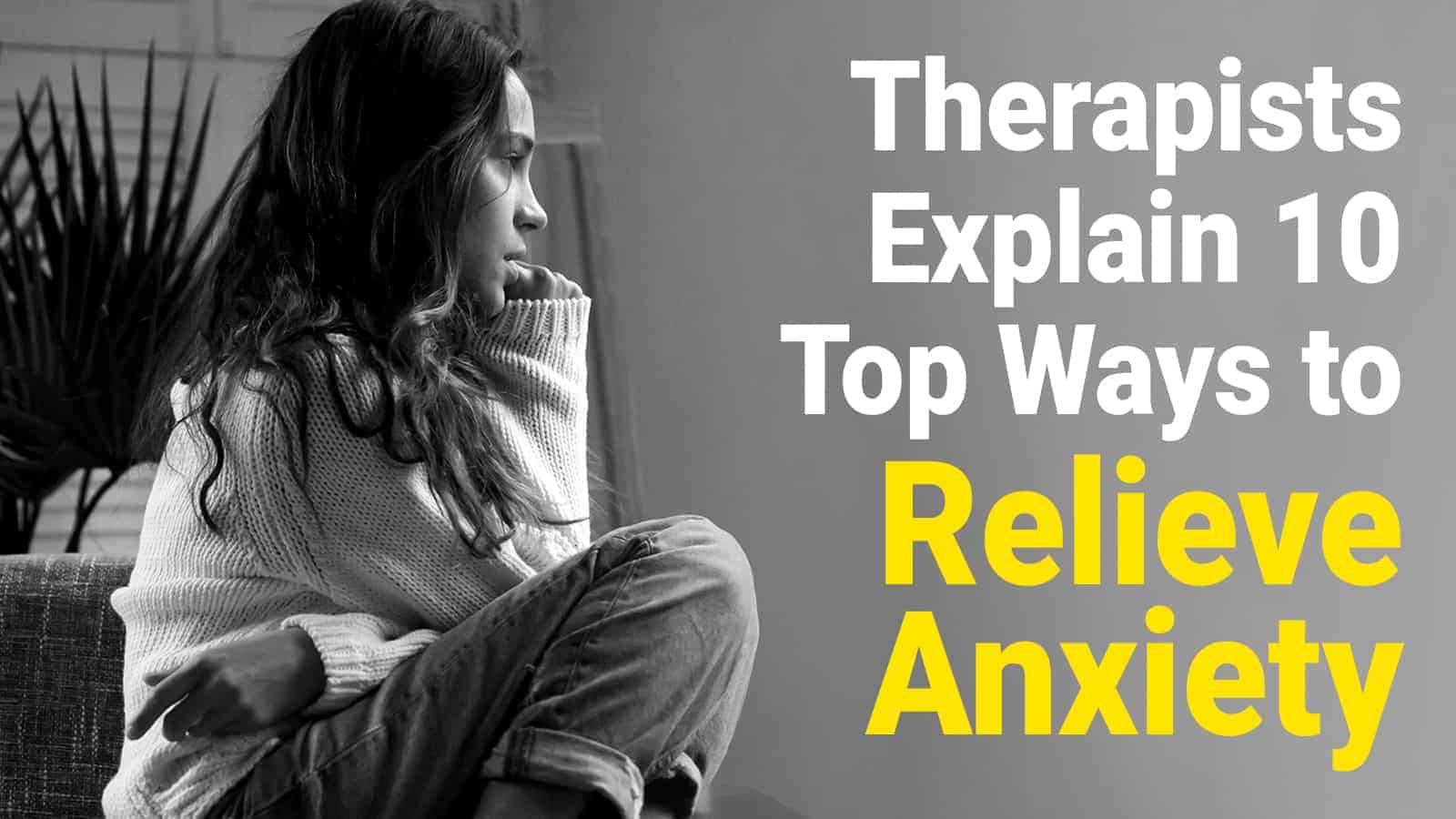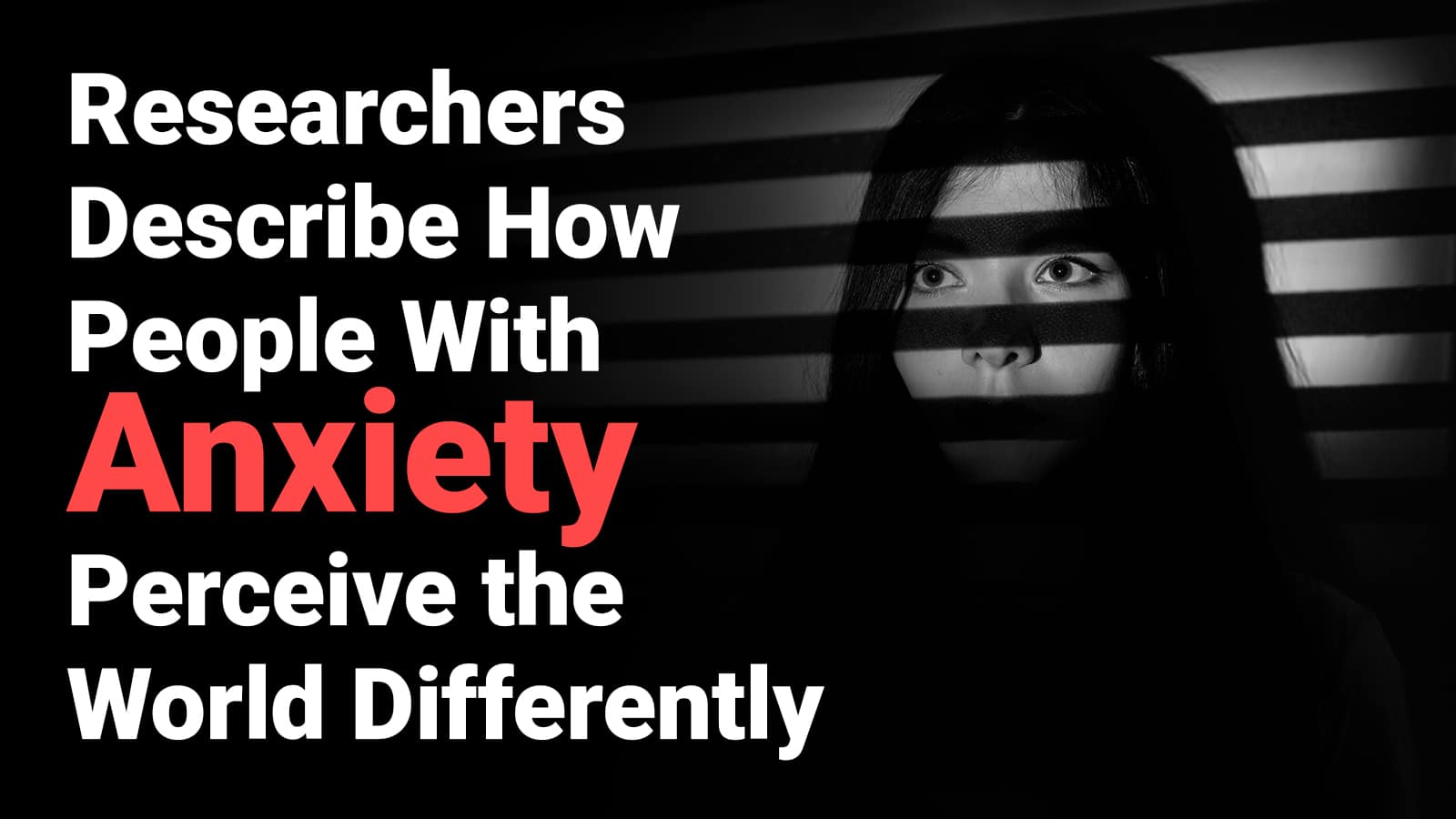Everyone gets anxious from time to time. After all, anxiety is an innate, automatic response designed to keep us out of harm’s way. Let’s say you’re crossing the road when suddenly out of your periphery you see a car B-lining your way. Well, the effectiveness of your anxiety response may very well determine if you live or die. Indeed, the purpose of anxiety is not to harm us but ensure our protection and survival.
In some instances, however, the typical general unease that is anxiety may become a permanent condition. Diagnoses that fall under this description include anxiety disorders, defined by the Mayo Clinic as “intense, excessive and persistent worry and fear about everyday situations.”
In this article, we are going to discuss both anxiety and anxiety disorders, including their biological and environmental origins. Additionally, we’ll talk about the problems with traditional methods of anxiety relief – including prescription medications – and how you can find natural ways to relieve anxiety according to therapists!
What is anxiety?
“Everyone experiences fear and anxiety at some point in their lives. Fear is an immediate response to a specific threatening stimulus. Anxiety, on the other hand, is [a] less intense but more sustained response.” – Dr. Levi Gadye (source)
Anxiety is a loaded word, ranging from a feeling of general unease to disabling fear, and everything in between. Perhaps the most apt synonym for anxiety – and one that applies to everyone – is worry. Though worry is just one aspect of anxiety, it is universal. Who hasn’t been worried about being late to work? Forgetting our homework? Paying the phone bill? We worry for ourselves, our family; heck – we worry for our favorite sports teams. We’re worriers, us humans.

The physiology of anxiety
Physiologically, anxiety is a byproduct of the fight-or-flight response rooted in three separate systems: the nervous, physical, and behavioral systems.
The nervous system is an intricate network of cells and nerves that transmit messages to and from the brain and spinal cord. Anxiety, nervousness, and panic originate from the nervous system, particularly in the signals sent to and from the brain and the peripheral nervous system. The physical system gives us multiple bodily symptoms – chest pain, heart palpitations, sweating, etc. – associated with anxiety. The behavioral system is a pattern of thoughts and feelings comprising anxiety in the form of environmental cues.
For most, anxiety, while an uncomfortable feeling, isn’t overly disruptive to everyday life. The anxiousness is short-lived and quickly replaced by some other emotion. No harm, no foul.
Unless the person is the victim of an anxiety disorder.
Anxiety Disorders
Anyone who deals with an anxiety disorder will tell you just how terribly unsettling the condition is. A concise answer to the question “How does it feel to have generalized anxiety disorder?” posted by Reddit user came courtesy of one ‘hughvr’: “You know that feeling when you touch your back pocket and don’t feel your wallet? Yeah … like that, but with 99% of whatever you do.”
That’s not far off.
Intermittent anxiety is one thing – a full-fledged anxiety disorder is another. Someone with an anxiety disorder deals with anxiety symptoms as a constant companion, often turning to dangerous medications like Xanax and Valium for relief.
The World Health Organization estimates that 1 in 13 U.S. citizens (18 percent of the population) suffers from an anxiety disorder. However, the unofficial number is likely to be much higher.
The Anxiety and Depression Association of America (ADAA) defines anxiety as “psychiatric disorders that involve extreme fear or worry.” Common symptoms of all anxiety disorders include:
- Coldness of the hands or feet
- Difficulty sleeping
- Dry mouth
- Inability to stay calm
- Heart palpitations
- Nausea
- Shallow breathing and tightness of the chest
- Stomach problems
- Uneasiness, fear, or panic
10 ways to relieve anxiety
“For him who has conquered the mind, the mind is the best of friends; but for one who has failed to do so, his mind will remain the greatest enemy.” – The Bhagavad Gita
Fortunately, there are effective, natural ways to relieve anxious thoughts and feelings. Therapists recommend the following ten methods of natural anxiety relief:

Acceptance
While, on the surface, accepting anxiety for what it is may not seem like a novel solution, indeed it is. Many people believe they are at the mercy of anxiety when the opposite is true. You can begin by (1) accepting that anxiety is part of life, and (2) understanding that resistance fuels it. Once you accept the situation for what it is, you can make a level-headed decision about what to do next!
Create a healthy routine to relieve anxiety
People with anxiety who are unwilling or unable to live an otherwise healthy life aren’t doing themselves any favors. While loading up on alcohol, caffeine, or junk food may create short-term feelings of comfort, these are among the worst things that one can do. When you take care of yourself, the natural elements of your body and mind can better counteract mechanisms of anxiety and create feelings of contentment. You know what your bad habits are; now is as good a time as ever to change things up!
Learn the “Relaxation Response”
The sympathetic nervous system (SNS) is the part of the brain that jumpstarts anxiety while the parasympathetic nervous system (PNS) is the kill switch. Of course, you want to PNS to activate when anxious. Fortunately, the PNS is under your direct control. The Relaxation Response, founded by Dr. Herbert Benson of Harvard University, is a six-step process that can create feelings of relaxation with 10 minutes.
Rehearse and repeat
We often feel the pressure to perform at a certain level both in our personal and professional lives. If your job or something else in your life requires that you always “be on,” get to the point where you can perform at a high level effortlessly. The best and only way to do this is through continuous rehearsal. Commit as many things to muscle memory as possible – and watch your anxiety levels drop off. Routinization of such tasks makes your life much easier.
Exercise to relieve anxiety
We’ve beat this rug how many times? Again, physical exercise is simply irreplaceable for promoting overall health and well-being. Moderately-intense exercise effectively lowers stress hormones while pumping out feel-good hormones like endorphins. Try getting a minimum of 30 minutes of moderate exercise daily.
Avoid the “second dart”
Siddhartha Gautama, otherwise known as The Buddha, once said that we’re all struck by two darts: the first being the pain stimulus and the second being our response. While it may not feel like it, there is a gap between them. Simply taking a breath after recognizing the stimulus can help you dodge that second dart!
Do something to help relieve anxiety
While there’s certainly a place for introspection, sometimes it’s best to take action. If you’re procrastinating on a project for example, it’s normal to feel anxiety. You can simply rid yourself of this feeling by doing what you’re supposed to do!
Be mindful
Mindfulness is all about awareness and observation of the mind. The basic premise of mindfulness is that thoughts and feelings do not require a response. We can be mindful that anxiety is present without engaging with it. Giving your full attention to whatever’s occurring in the here and now is another act of mindfulness; and it goes a long way towards reducing or eliminating negative emotions, including anxiety.
Rest
We live in one of the busiest, most stressful periods in history. While most of us reading this are considered more “well off” than the generations before us, these comforts have come at a high cost – especially to our overall sense of well-being. As a result, many of us are no longer prioritizing rest and relaxation due to the pressures of work. It’s worth remembering, however, that the better rested and relaxed we are, the higher the quality of our life and work!
Get help to relieve anxiety
Okay, so this list is focused on natural means of treatment. But we’d be dishonest in saying this approach is best for everyone. And the truth is that we all need some help sometimes! If you’re suffering with anxiety that feels overwhelming, please talk to someone.
Final Thoughts: The problem with medication to relieve anxiety
The overarching problem with most medications for both anxiety and depression is that they don’t treat anything. At best, these medicines do just enough to make everyday life tolerable. This is particularly true for drugs like Xanax and Valium (benzodiazepines).
Another problem with anxiety medicines is that the person often depends on them for life. Again, the drugs do not alter or change the underlying condition, which would require a change in the patient’s brain chemistry in the case of anxiety disorders.
This isn’t to say that anxiety drugs don’t have their place. Indeed, when prescription drugs like antidepressants are part of a comprehensive treatment plan, they can be of tremendous value for anxiety sufferers. In this sense, the healthcare systems and its doctors are often part of the problem – as many are unable, unwilling, or uninterested in carrying out such a complex plan. Utilizing some of the natural suggestions above to relieve anxiety, however, will support any other form of treatment and help those suffering to maintain a more positive outlook.



















